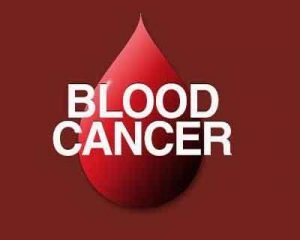- Home
- Editorial
- News
- Practice Guidelines
- Anesthesiology Guidelines
- Cancer Guidelines
- Cardiac Sciences Guidelines
- Critical Care Guidelines
- Dentistry Guidelines
- Dermatology Guidelines
- Diabetes and Endo Guidelines
- Diagnostics Guidelines
- ENT Guidelines
- Featured Practice Guidelines
- Gastroenterology Guidelines
- Geriatrics Guidelines
- Medicine Guidelines
- Nephrology Guidelines
- Neurosciences Guidelines
- Obs and Gynae Guidelines
- Ophthalmology Guidelines
- Orthopaedics Guidelines
- Paediatrics Guidelines
- Psychiatry Guidelines
- Pulmonology Guidelines
- Radiology Guidelines
- Surgery Guidelines
- Urology Guidelines
Antibody-based drug may act as a bridge to cure blood cancer

New Delhi : A randomised study of an anti-body based drug, inotuzumab ozogamicin, appears to be a promising ‘bridge treatment’ for patients suffering from acute lymphoblastic leukemia (ALL), a cancer of white blood cells and bone marrow particularly among those patients who experience a relapse of the disease following standard therapies.
After being treated with the new drug, a significant percentage of such patients qualified for stem cell transplants, a cure for acute lymphoblastic leukemia (ALL).
ALL is the most common type of cancer in children, but treatments result in a good chance for a cure.
However, when this disease afflicts an adult, the chance of a cure is greatly reduced.
Stem cell transplant is resorted to in cases when the disease relapses.
Inotuzumab ozogamicin, also known as CMC-544, links an antibody that targets CD22, a protein found on the surface of more than 90 per cent of ALL cells.
Once the drug connects to CD22, the ALL cell draws it inside and dies.
The study, which revealed complete remission rates of nearly 81 per cent and significantly longer progression-free and higher overall survival rates than with standard therapies, was conducted at The University of Texas MD Anderson Cancer Centre.
Study findings were reported in the online issue of the New England Journal of Medicine.
"Forty-one per cent of ALL patients in the study were able to proceed to transplant after receiving inotuzumab ozogamicin compared with the 11 per cent we have seen qualify through standard chemotherapy," said Hagop Kantarjian, chair of Leukemia.
Given that stem cell transplant is considered the only curative treatment option, the ability of inotuzumab ozogamicin to increase the number of patients able to bridge to transplant is encouraging.
Donor stem cell transplants from bone marrow and other sources generally are considered curative for this aggressive form of leukemia, specially, among adults.
Transplant is considered an option only in patients suffering remission of the disease.
Current therapies for adults with newly diagnosed B-cell ALL result in complete remission rates (CR) of 60 to 90 per cent.
However, many of those patients will relapse and only about 30 to 50 per cent will achieve long-term, disease-free survival lasting more than three years.
"Standard chemotherapy regimens result in complete remission in 31 to 41 per cent of patients who relapse earlier, and just 18 to 25 per cent in those who relapse later," said Kantarjian.
Patients in the inotuzumab ozogamicin study had remission rates of 58 per cent, higher than previously reported, possibly due to patients being treated later in the disease course.
The study reported moderate side effects, the most common being cytopenia, a disorder that reduces blood cell production, and liver toxicity.

Disclaimer: This site is primarily intended for healthcare professionals. Any content/information on this website does not replace the advice of medical and/or health professionals and should not be construed as medical/diagnostic advice/endorsement or prescription. Use of this site is subject to our terms of use, privacy policy, advertisement policy. © 2020 Minerva Medical Treatment Pvt Ltd